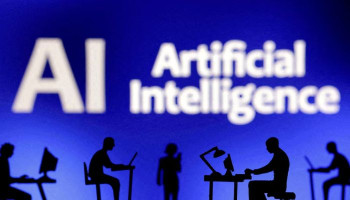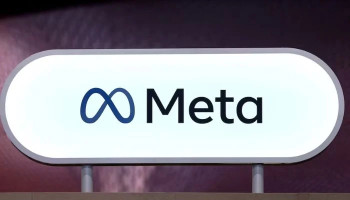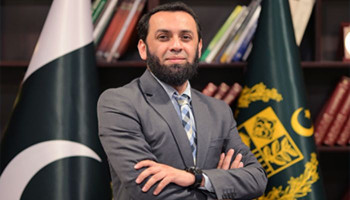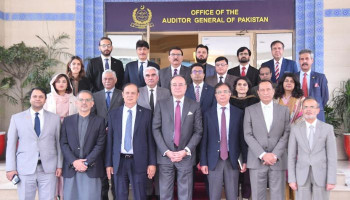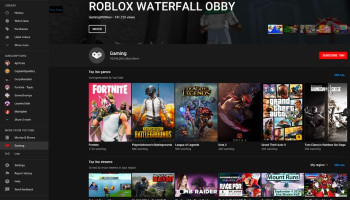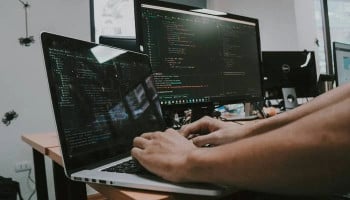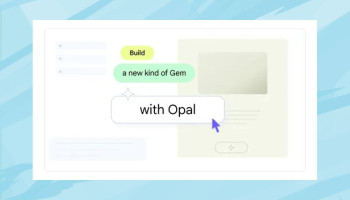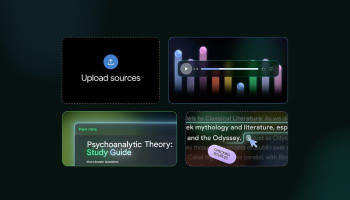
As artificial intelligence becomes increasingly integral to the creative industries, music stands at the centre of innovation, debate, and artistic evolution. At an exclusive session titled Music in the Age of Algorithms: How AI is Revolutionising Music Production, held during the School of Tomorrow (SOT) event at Karachi’s Beach Luxury Hotel, industry experts gathered to discuss how AI is reshaping the world of music.
The panellists explored AI’s extensive impact on music, from composition to distribution, touching on everything from creative input to copyright and intellectual property challenges. The session showcased how AI can bridge the gap between technology and tradition, offering a glimpse into a world where human creativity and machine intelligence merge to reshape the future of music.
AI in music production
Artificial intelligence is rapidly transforming music production, breaking down traditional barriers to creativity. From royalty-free music libraries to sophisticated audio mixing, AI is proving to be a powerful tool for musicians and producers. Today, music production is accessible to creators with no formal music training, as algorithms analyse data patterns and predict trends.
"The tools we’re using now, like Adobe Podcast, do most of the heavy lifting in audio production," said Musician and Music Producer Sinnan Fazwani. "Audio quality has improved drastically since the 60s and 70s, and these tools have given new life to artists’ work, allowing them to enhance and renew it in a way that wasn't possible before."
Can AI capture emotion?
One of the session’s most thought-provoking questions was whether AI-generated music could replicate the “soul” of human-made music. While AI can generate harmonies, melodies, and beats, it may lack the authentic emotional depth found in human-created music.
As vocalist and songwriter Bilal Ali noted, "While AI can recreate an artist's voice, it will never be able to capture the emotions and nuances that bring a song to life." Similarly, singer, composer, and lyricist Tina Sani commented, "There's a synergy in traditional music-making that gets lost with AI tools. I prefer the organic, human process over-relying on these technologies." Bilal Ali added, "At some point, we might not even be able to tell if a song was created by a person or by AI. This blurring of lines could make the music feel less authentic."
AI’s impact on musicians and the art form
The panel discussed both the opportunities and challenges AI introduces to the music industry. AI democratises access to high-quality production tools, empowering new artists and facilitating genre-blending experimentation. However, the increased use of algorithms in music production may challenge originality and expression, making it harder for musicians to distinguish their work in an increasingly crowded digital space.
When asked about the future of AI in music, Hammad, the AI avatar, noted, "Looking five years ahead, we’ll likely see more career paths where tech and creativity blend, virtual reality concerts, personalised playlists, and roles for AI collaboration producers. It’s all about merging tech with human artistry to offer unique experiences." However, Bilal Ali raised ethical concerns, stating, "AI is such an expansive field that we don’t fully understand its impact yet. The ethical considerations around AI-generated music are complex, and we might struggle to control its effects on the music landscape."
Copyright and ownership: Navigating new territory
The increasing role of AI in music composition has sparked debate over copyright and content ownership. Traditional compositions belong to their creators, but authorship in AI-generated music is more complex. The panellists agreed that current copyright laws are insufficient and argued that new frameworks are needed to ensure fair recognition and compensation for both human and AI contributors.
Tina Sani shared her own experiences with copyright issues, noting, "Copyright issues have always been difficult for artists. I was signed with a British multinational music publishing company, which no longer operates in Pakistan. When they sold their rights, all the artists' work was transferred without their consent. Today, AI can create music that mimics human voices and styles, merging multiple influences. But where does that leave the original artists?" She added, "If non-musicians keep using AI to produce music, they might soon lose interest, as it lacks genuine creativity."
Bilal Ali also addressed the copyright implications of AI data use: "There’s already debate on the copyright implications of feeding vast amounts of data into AI systems. In the future, will artists receive fair recognition for the nuances they bring to their work, or will AI simply evolve into an autonomous producer?"
Classifying AI-generated music: Ensuring fair recognition for creators
One key issue was the need to clearly classify AI-generated music. Proper labelling is essential to ensure fair compensation and recognition for human creators. If AI-generated music is presented as “authentic” without distinction, it risks diminishing the value of human creativity in the public eye.
Tina Sani speculated, "When AI becomes embedded, recording companies may finally stop funding bands and single artists and instead turn to algorithms to curate content. Without proper curation, the industry probably won't know what people are losing with human-made music."
Preserving musical heritage with AI
While AI poses challenges, it also offers unique potential for the preservation of musical heritage. Advanced algorithms can capture and replicate traditional musical styles, potentially preserving fading cultural expressions.
Hammad, the AI avatar, highlighted this potential: "AI can serve as a repository for traditional music, helping preserve and replicate it in new ways. But reviving these traditions requires a balance, as the essence of such music often lies in the hands of human musicians who understand its cultural context."
As AI reshapes Pakistan’s music industry, balancing innovation with preserving music’s emotional core is vital. The panellists underscored the need for new frameworks and policies to guide this transformative era, ensuring music remains a deeply human art form, even as it embraces the age of algorithms.





